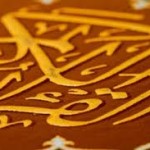Does Zihar occur without making intention?
QUESTION:
if there is a context that points to zihar, then it is zihaar.” – is it correct?
Here, the husband said to his wife that, “You are to me like my mother” and the husband believes that, he had no intention to make zihar.
ANSWER:
In the Name of Allah, the Most Gracious, the Most Merciful.
As-salāmu ‘alaykum wa-rahmatullāhi wa-barakātuh.
Zihar is when one compares his wife to his mother, sister, or any other female relative [with whom he is unlawful to marry], with the intent to make her unlawful as are these [mentioned] women.
In the above scenario, Zihar will not occur as the husband did not make any intention of Zihar. [1]
And Allah Ta’āla Knows Best
Musayb Dhaleel
Concurred by: Hanif Yusuf
References
[1]
ولو قال لها انت علي كأمي أو مثل أمي يرجع إلى نيته فإن نوى به الظهار كان مظاهرا وان نوى به الكرامة كان كرامة وان نوى به الطلاقكان طلاقا وان نوى به اليمين كان إيلاء لأن اللفظ يحتمل كل ذلك اذ هو تشبيه المرأة بالأم فيحتمل التشبيه في الكرامة والمنزلة ……. فأيذلك نوى فقد نوى ما يحتمله لفظه فيكون على ما نوى
وان لم يكن له نية لا يكون ظاهرا.
[Bada'i' al-Sana'i' fi Tarteeb al-Shara'i': 5:8]
و إن نوى بأنت علي كمثل أمي او كأمي وكذا لو حذف علي خانية برا او ظهارا او طلاقا صحت نيته ووقع ما نواه لأنه كناية وإلا ينو شيئا اوحذف الكاف لغا وتعين الأدنى لأنه مجمل في حق التشبيه فما لم يتبين مراد مخصوص لا يحكم بشيء.
[Radd al-Muhtar: 5:131]
وإن نوى بأنت علي مثل أمي برا او ظهارا او طلاقا فكما نوى وإلا لغا ……( وان لم ينو شيئًا كان باطلا )
[Al-Bahr al-Ra'iq: 4:165]
وان قال أنت علي مثل أمي يرجع الى نيته ….. وان لم تكن له نية فليس بشيء
[Al-Tasheeh wa al-Tarjeeh: Dar al-Kutub al-Ilmiyyah Print, 353]
وعن محمد : اذا قال لها انت مثل امي يريد به التحريم فهو ظهار وان لم تكن له نية فهو باطل
[Fatawa Tatarkhaniyah: 7568]
ولو قال انت علي كأمي فهذا كلام يحتمل وجوها لأن الكاف للتشبيه وتشبيه الشيء بالشيء قد يكون من وجه وقد يكون من وجوه
وان نوى الظهار فظهار لانه شبهها بجميع الام ولو شبهها بظهر الام كان ظهارا فإذا شبهها بجميع الأم كان اولى وان لم يكن له نية فليسذلك بشيء.
[Al-Mabsut: 6:267]
DISCLAIMER:
The Ask Our Imam site hopes to respond to queries relating to Islamic law. It is not an Islamic Law Shari`ah Court. The questions and answers found on this website are for educational purposes. However, many of the rulings rendered here are distinct to the specific scenario and thus should be read in conjunction with the question and not taken as a basis to establish a verdict in another situation or environment. This site bears no responsibility in these responses being used out of their intended context, nor to any party who may or may not follow the responses given and is being hereby exempted from loss or damage howsoever caused. None of the responses rendered may be used as evidence in any Court of Law without prior written consent of Our Imam. Any reference to another website or link provided in our responses or article should not be taken as an endorsement of all the content on that website; in fact, it is restricted to the particular material being cited.
Posted in Oaths & VowsNikah & Talaq (Marriage & Divorce) on 18th Nov 2021 by Our Imam | 621 Views





